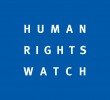by Chief Justice Reynato S. Puno
Supreme Court
The motto of the Polytechnic University of the Philippines (PUP) is Tanglaw ng Bayan, literally Light of the Nation. As you leave the portals of this university, your feet will bring you down to the lowly valleys of life or up to the mountaintops of life. As Viktor Frankl once wrote, �Everyone has his own specific vocation or mission in life; everyone must carry out a concrete assignment that demands fulfillment. Therein he cannot be replaced, nor can his life be repeated, thus, everyone’s task is unique as his specific opportunity to implement it.� You are light but be warned that �what is to give light must endure burning.�
Unlike others who are less privileged, you graduated with the assistance of the State. In the school year 2004-2005, some 2,402,315 were enrolled in both public and private schools for higher education. In year 2003, the number was 2,431,378. In years 2001-2002 the figure was 2,466,056.[1] Four years ago, therefore, there were around 40,000 students more who were enrolled than last year�s statistics. We are seeing a steady decline in the number of students enrolled for higher education. It is a cause of concern whatever its driving reason may be.
The right to education is one of the more important socio-economic rights of our people protected by our Constitution. Social-economic rights refer to material claims of the individual in a just society, where �justice� means more than just existing under some esoteric laws but of coping successfully to the realities of a changing and dynamic life. It espouses the egalitarian idea which assures individuals and groups fair treatment and a just share of the benefits of society. Theoreticians of socio-economic rights differ on their stand as to what makes up these rights, what constitutes fair treatment and what constitutes a just share�but in our jurisdiction, this was captured in the shorthand statement, that those who have less in life should have more in law.
Mankind has not stopped in search of the formula on how we can most equitably distribute justice to the princes and paupers of this planet. The latest, most provoking study on distributive justice has been done by political philosopher John Rawls (1921-2002). His first statement of principle was made in his classic treatise entitled A Theory of Justice (1971) where he advanced the radical proposition that, �Each person possesses an inviolability founded on justice that even the welfare of society as a whole cannot override. For this reason, justice denies that the loss of freedom for some is made right by a greater good shared by others.� (Theory of Justice, p. 3) In his follow-up book Political Liberalism (1993), he batted for a society that ought to develop �as a fair system of co-operation over time, from one generation to the next.� To determine whether any particular system of collectively enforced social arrangements is legitimate, he urged that one must look for agreement by the people who are subject to it and how well these people are served by these arrangements.
Centuries ago, philosophers John Locke (Two Treatises on Government) and Thomas Hobbes (The Leviathan) referred to these collective arrangements as the social contract where individuals agreed to yield their personal freedoms to the power of the State in order that they can live in peace and with progress in a civil society. Hobbes hardly thought of any limitation to the power of the State when wielded for the general welfare. Locke, however, argued for a limitation on the power of the State — basic human rights which the State cannot violate under any pretence. Since then, human rights have evolved into two main categories: civil and political rights on one hand, and socio-economic rights on the other.
We are familiar with their distinction. Civil and political rights are those that protect and promote human dignity, equality, privacy, suffrage, freedom of religion, belief and opinion, freedom of expression and assembly, freedom to petition the government for redress of grievances, freedom of association, freedom of movement, etc.
Social and economic rights are those material claims over goods that sustain life: right to education, right to health, right to food, right to land, right to water, right to a clean and healthful environment, right to social security, right to housing, right to just share in the production of goods, right to equal access in opportunities and other related rights necessary to a decent life.
It is interesting to note the difference in result of mankind�s fight for the predominance of their civil and political rights and mankind�s struggle for the preeminence of their socio-economic rights. The records will show that mankind has encountered more insurmountable difficulties in fighting for their socio-economic rights. Except in a few jurisdictions, political and civil rights have already been won by lives lost, by blood spilled over, by throats hardened by scar-tissues. In contrast, the fighters for the socio-economic rights of the poor have but won some grudging victories. They are involved in a fight which scarcely attracts attention for a fight characterized more by the silent grumbles of a hungry belly does not grab the eyeballs of the public. We all know that those with empty bellies hardly have the strength to wrestle with the elite, they hardly have the stamina to sustain a prolonged struggle — they give up even before the end of a good fight.
The question that still eludes the most cerebral of men is � why is the velocity of development of socio-economic rights slower than political and civil rights? Undeniably, they both spring from the same self-evident truth that man ought to be free from arbitrary and despotic rule. Beyond debate, they are both rights whose common purpose is to make living in a society agreeable and the social contract worth signing without a sigh. Presumably, we are past the time when the natural right of a person to life, to liberty and to property depends on the strength of his muscles and the size of his fists. The era is supposed to be over when man�s interests are advanced by conquest driven by the power that comes from the sword, the blast of bullets and bombs and the terror from weapons of mass destructions.










